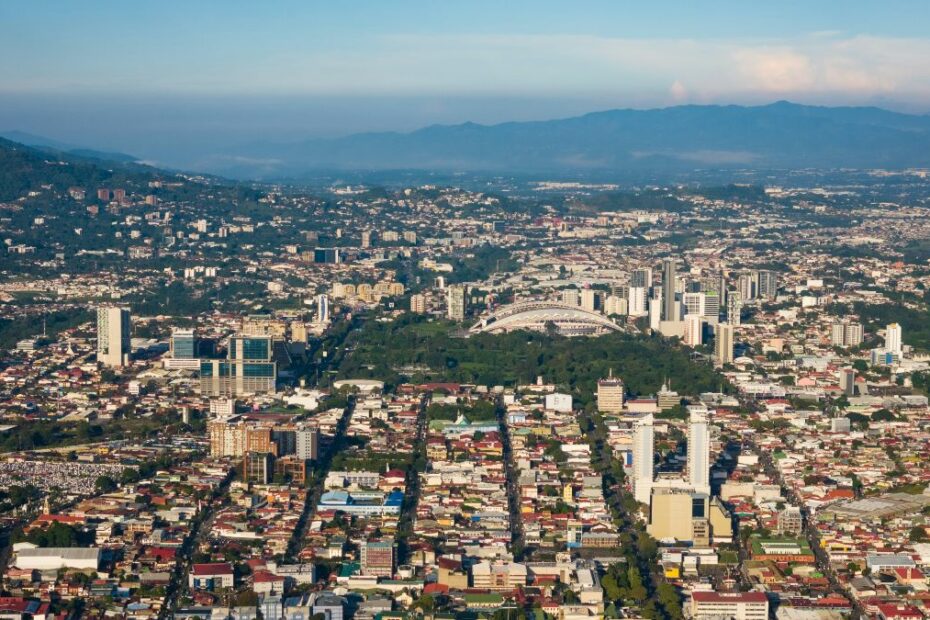Unlock the potential of Central America for your business expansion. Our guide offers strategic insights on navigating the region’s opportunities, from identifying ideal locations to building local partnerships.
Central America promises a thriving business environment and countless opportunities for growth and diversification due to its growing and developing market. Yet, moving a business there can feel overwhelming – especially given the unfamiliar legal and business landscapes that pose significant challenges.
So, where to begin? This guide offers clear, actionable insights that can help you get started with planning your business expansion strategy. The tips below are the starting point to simplify the complexity of the journey ahead and pave your way to success in Central America.
Have you ever dreamed of starting a business in Central America? Here are some common ways how expats finance their dreams.https://t.co/cP2xOSYZ8y
— Central America Living (@VidaAmerica) April 29, 2024
Find The Area With The Best Business Climate
Identifying the ideal location is crucial for any business expansion, and moving to Central America is no exception. Statistics relating to the business environment of Central America highlighted San José, the capital of Costa Rica, as having the best startup ecosystem in 2021. The city scored highest in terms of size, quality, and overall business climate, outperforming other regional hubs. Panama City, Panama also ranked highly, taking the second spot for its thriving environment for startups.
Both cities offer robust infrastructure, a skilled workforce, and supportive policies. But they may not be the best spot for your company! Be sure to carry out your own research and pinpoint the right area to set a strong foundation for growth and profitability.
Additionally, effective logistics and fulfillment planning can make or break your expansion efforts. The complexities involved – from supply chain coordination to last-mile delivery – require careful planning. This is even more true in Central America, where the varied topography and infrastructure may require customized strategies.
For instance, if you are looking to expand, say, your cosmetics company here, understanding cosmetics fulfillment is crucial to ensure you are operating with the right legal framework and are meeting the expectations of your customers in Central America.
6/ Planning to base yourself in a Central American city? Panama City leads in fixed broadband speed:
Panama City 🇵🇦 (44th in world)
San José 🇨🇷 (73rd)
Guatemala City 🇬🇹 (113rd)
San Salvador 🇸🇻 (115th)
Managua 🇳🇮 (116th)
Tegucigalpa 🇭🇳 (126th)
San Pedro Sula 🇭🇳 (127th)— Central America Living (@VidaAmerica) January 18, 2024
Carry Out In-Depth Market Research
Understanding your target market is non-negotiable, especially when moving or expanding your business to a foreign location. Conducting thorough market research helps you identify consumer needs, preferences, and purchasing power in the local area.
In Central America, market dynamics can vary widely between countries. For example, Costa Rica’s eco-conscious consumers might prioritize sustainability, whereas the urban populations of Guatemala (Guatemala City is by far the largest city in the region) or Panama might lean towards convenience.
Utilize local surveys, focus groups, and competitor analysis to gather actionable insights. Additionally, partnering with local market research firms can also provide a clearer picture of regional trends.
Ensure Legal Compliance
Navigating the legal landscape is essential when expanding your business. Central American countries have distinct regulations for foreign businesses, including tax laws, employment contracts, and product standards. It is easy to see how failing to comply with these regulations can result in fines or operational shutdowns.
For instance, Costa Rica’s regulatory environment is stringent regarding environmental impact, while Panama is well-known worldwide for offering more lenient tax structures. Most countries in Central America have extremely strict rules regarding workers rights, paid vacation time, maternity leave, and so on. Misunderstanding any of these rules can leave business owners in serious trouble.
Given these complexities, you should always ensure that you have the necessary permits and adhere to local and international regulations. However, if you are in doubt, consulting with legal experts familiar with the local laws can help you avoid pitfalls.
Which country in Central America offers the most days of annual paid time off and maternity/paternity to employees? @serviapglobal co-founder and CEO Victor Anaya compares paid time off around the region.https://t.co/6QjKcQj5wb
— Central America Living (@VidaAmerica) February 10, 2023
Hire Local Talent
Local talent brings invaluable expertise and cultural insights to your business, which is why hiring locally not only eases the transition but also fosters good relationships and your business’s reputation in the community.
Plus, you won’t struggle to find a diverse and skilled workforce in Central America. For instance, Costa Rica is known for its high educational standards, while Belize is a native English-speaking country. Utilize local job boards, recruitment agencies, and networking events to find the right candidates.
Provide Multilingual Customer Service
Research by Intracom reveals that 29% of businesses have lost customers due to the lack of multilingual support. This issue is magnified when expanding into Central America, a region with diverse linguistic needs.
Implementing multilingual support ensures that you cater to a broader audience, enhancing customer satisfaction and loyalty. Investing in local language capabilities will give you a competitive edge, allowing seamless communication in a multilingual region. Don’t forget that you can use AI and automation to streamline this aspect of your business.
An updated guide to English proficiency in Central America. Which country has the highest English proficiency and the lowest?https://t.co/n88CtmDq0a
— Central America Living (@VidaAmerica) January 31, 2023
Understand The Need For Cultural Adaptation
Starting a business in Central America requires more than just market knowledge – cultural adaptation is key. In this area in particular, the rich cultural tapestry influences consumer behavior and business practices. From local holidays to unique social norms, understanding these nuances can impact your brand’s acceptance.
Adapting your business model, marketing strategies, and even product offerings to align with local culture can foster stronger connections and trust. On the other hand, ignoring cultural differences while moving your business into Central America can lead to misunderstandings and missed opportunities, which will ultimately hamper your expansion efforts.
To succeed in business in Central America, it’s crucial to understand and respect cultural differences. @BizLatinHub CEO Craig Dempsey offers some tips for improving your cross-cultural communication skill when doing business in Central America.https://t.co/QrKjPDxVH0
— Central America Living (@VidaAmerica) March 22, 2023
Build A Network of Local Partners
Building a robust network of local partners can significantly ease your business expansion in Central America, as local partners bring in-depth market knowledge, established relationships, and operational expertise. Collaborating with local distributors, suppliers, and service providers can help you navigate the complexities of a new market.
For instance, a local logistics partner can offer crucial insights into supply chain management tailored to regional challenges. If you are looking to get started with building your network, you may use social media platforms like LinkedIn, networking events, industry associations, and local chambers of commerce are also excellent avenues to identify potential partners.
Explore Tech Innovation and Integration
Harnessing technology can revolutionize your business operations in Central America. Just like in any other business environment, implementing e-commerce platforms, CRM systems, and advanced analytics improves efficiency and customer engagement.
But when it comes to expanding into another market and testing what strategies work best, technology can become a powerful ally to evaluate your progress, curb unnecessary spending, and improve returns.
The bottom line? Expanding into Central America holds significant potential, and with careful planning and strategic execution, your business can thrive.
Just make sure to build your education surrounding local cultures, business environment, legal requirements, and customer needs. Don’t forget that you are not alone in this – bringing together a team of specialists can support you in your journey.



